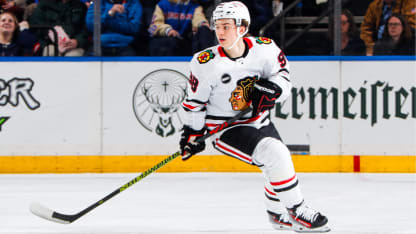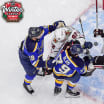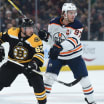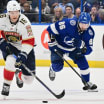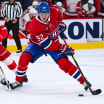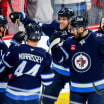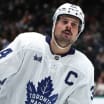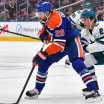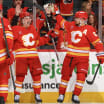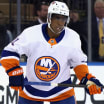The Coaches Room is a regular feature throughout the 2023-24 season by former NHL coaches and assistants who turn their critical gaze to the game and explain it through the lens of a teacher.
In this edition, Paul MacLean, former coach of the Ottawa Senators and assistant with the Anaheim Ducks, Detroit Red Wings, Columbus Blue Jackets and Toronto Maple Leafs, looks at how young players need to navigate their way through the NHL. Chicago Blackhawks rookie sensation Connor Bedard had a setback when he sustained a fractured jaw on a hit by New Jersey Devils defenseman Brendan Smith on Jan 5.
I saw the play with Connor Bedard and the first thing you can't do is tell a young player to go out there and be careful because then he's not going to be able to play. You just have to tell him to go out there and play and handle yourself first.
You have to be able to handle yourself and, in my opinion, you can't play in the NHL and expect anybody but yourself to protect yourself.
The referees and linesmen are there to apply the rules. Your teammates are there to help you if you get in trouble, the League is there to help if anything egregious happens, but when you step on the ice, you're responsible for you and you have to make sure you're taking care of yourself on the ice, however that case may be.
In the case of Bedard, it seemed like a regular course of play where he was coming over the blue line and kind of lost the puck. I don't think Brendan Smith stepped up on him. To me, it was a clear, fair bodycheck in the game of hockey, which is allowed.
The NHL is hard place to learn and lot of times when you're a very good player, like Bedard or Connor McDavid -- generational players -- you play in the League without maybe the seasoning you get in the American Hockey League, where you would have people there to help and make sure you don't put yourself in that position.
At the NHL level, it's a little bit harder. It's a man's game out there and people are there to not let you do things. They understand how you play and are trying to make sure you don't get to do what you want to do when you're out there.
It's really hard to tell players they can't do the same things in the NHL they did in junior because they don't believe you and they have to be the player they are. They have to find out they can't do some of the things they did in junior in the NHL. They have to change their game a little bit.
You learn that as you go up in leagues.
I remember going from Junior B in Nova Scotia to a tryout with the Oshawa Generals (Ontario Hockey League) and realizing you're not the best player there anymore. That happens to young players as you keep moving up, when suddenly, you're not the best player anymore and that can sometimes force you to make some adjustments to your game and realize the strength of your game and what you have to do to play in the league.
It's the coach's job to point out to the players the things he needs to do if you want to play in the League and on my team. On our team, this is what's expected of you and all young players go through that.
There are a lot of good young players in the NHL, and they all develop differently. I like what the Anaheim Ducks were doing with their young player, Leo Carlsson, and bringing him along slowly, sitting him out in some games. He sprained the MCL in his right knee Dec. 23, but it was working. It's a new and innovative approach they are using to protect a young player.
I coached Mika Zibanejad when he was just starting out in the League with the Ottawa Senators in 2011-12. He worked hard at the aspects of his game he was good at, such as his skating, shooting and hockey sense, but he also put in a lot of time working on the things that needed improvement, like his body strength, face-offs and play without the puck.
Mika put in a lot of time and effort to become the player he is today with the New York Rangers.
